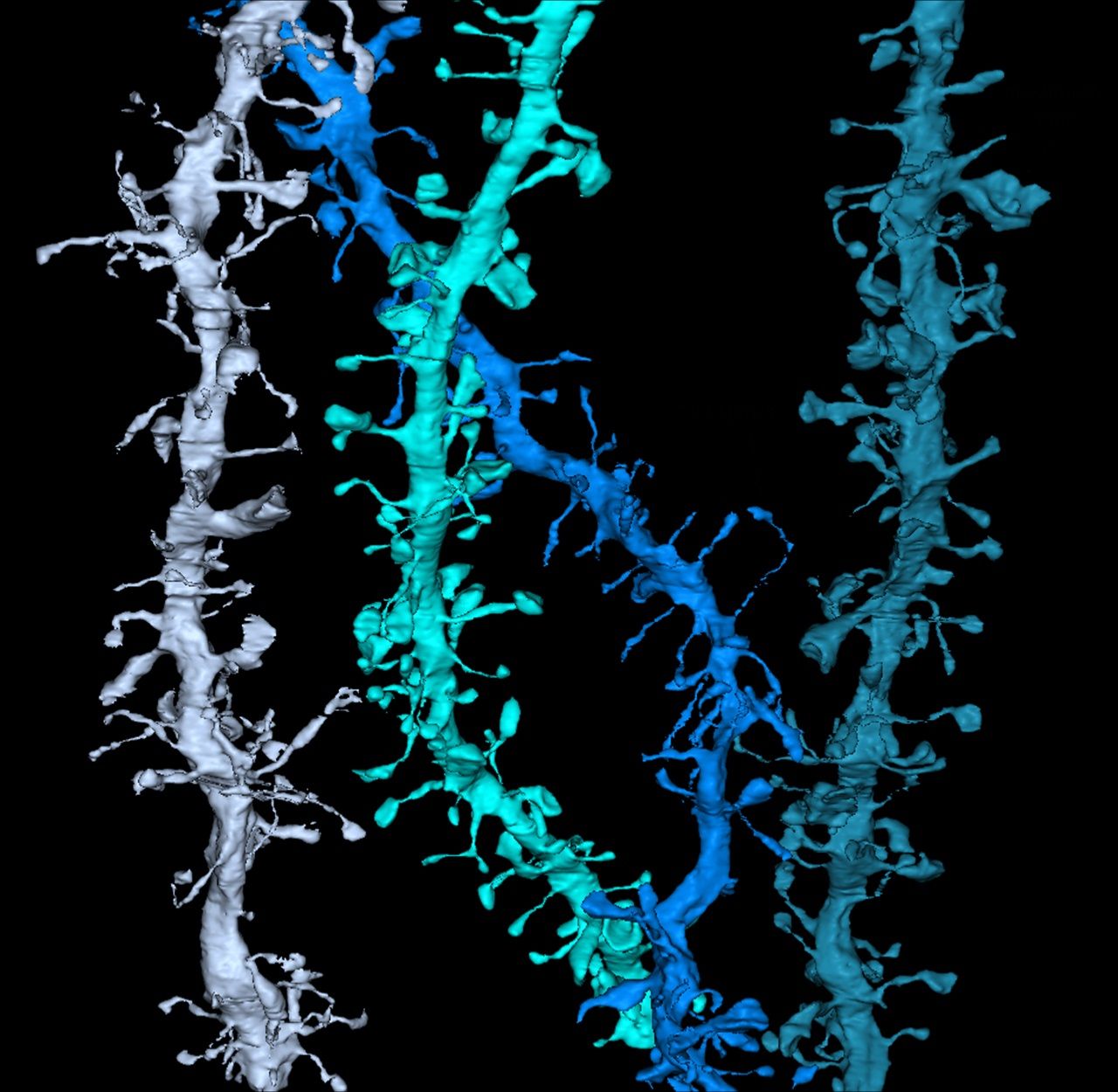
In the classic film Groundhog Day, Bill Murray's character keeps waking up on February 2. Once he goes to sleep, the world is reset—deconstructed and rebuilt. He awakes renewed, yet with his (important) memories intact.
A pair of studies published February 2 in the journal Science suggest that the brain behaves similarly while asleep, forgetting what's irrelevant by literally clearing it away while holding onto what's vital. They show that connections within the brain are paired down significantly during slumber, providing a crucial "reset" researchers think erases forgettable information, integrates consequential information, and makes way for the memories of a new day (one which, hopefully, contains a minimum of Ned Ryersons).
Related: How the structure of your brain influences your personality
One paper, led by neuroscientists Chiara Cirelli and Giulio Tononi from the University of Wisconsin-Madison, found that mice synapses—connections between brain cells—shrunk by an average of 18 percent during sleep. These synapses then grew as the day went on, only to be pared back again at night time, Cirelli says.
These researchers used a cutting-edge technology called serial block-face scanning electron microscopy, which produces extremely hi-resolution images of neurons within two areas of the mouse cerebral cortex, a part of the brain involved in learning and memory. The device uses a tiny knife to slice into the brain, scans a layer of neurons and repeats this process, producing thousands of images. The team then analyzed this bevy of data to record the behavior of synapses day and night.
For more than a decade, the team has hypothesized that the brain would behave this way, a theory called the "synaptic homeostasis hypothesis." They suggested that the strengthening of synapses that occurs when one is awake cannot happen indefinitely; there is only so much space in the brain, and some sort of reset is needed. This study provides some of the first concrete evidence that structural changes take place during slumber and at night, says Derk-Jan Dijk, a professor of sleep and physiology at the University of Surrey, who wasn't involved in the research.
Maiken Nedergaard, a scientist at the University of Rochester Medical Center who also wasn't involved, says the research shows "that the different states of brain activity actually alter [its] structure...that is an almost scary thought."
A second paper in Science by Richard Huganir, Graham Diering and colleagues from Johns Hopkins University provides insight into the biochemistry controlling this process. The group found that a protein called homer1a inserts itself into synapses when mice got very tired and dozed off, initiating a chain of events that led to the weakening of connections with other neurons. Likewise, during wakefulness, this protein was expelled from synapses, and appears to be prevented from binding by the neurotransmitter noradrenaline, which is associated with alertness and which drops during sleep, Diering says.
The results suggest sleep has a restorative function at a structural level, "like a sort of wiping of the slate," Diering say.
Both studies help explain why sleep deprivation impairs memory. Diering notes that when mice were overtired and unstimulated, homer1a was found in high levels in their synapses, suggesting it had already begun the scaling-down process associated with sleep, likely interfering with learning and memory-consolidation.
Adenosine also plays a role. This neurotransmitter builds up the longer one is awake and helps promote sleep; Diering notes that caffeine is thought to work by blocking adenosine's activity, and preventing it from causing drowsiness. When the team gave mice a stimulant similar to caffeine, homer1a didn't enter into synapses and begin to do its thing, he adds.
More research needs to be done to show conclusively what's happening during sleep, however. While "these studies represent extremely important advances in the scientific effort to solve the mystery of sleep," there could be other explanations for what is causing these changes, says Marcos Frank, a neuroscientist at Washington State University. Frank notes that the brain has a master clock that controls many biological functions, and it could play a role in this down-scaling process independent of sleep. He's also skeptical that other areas of the brain—aside from the two areas of the mouse cortex investigated in the Wisconsin-led paper—will behave similarly.
Nedergaard says the synaptic homeostasis hypothesis is "the best theory out there," but stresses that sleep has other important functions. For example, her work has shown that slumber is vital for clearing out toxic waste from the brain.
The studies suggest that the pairing-down that happens during sleep isn't uniform—already strong synapses that likely help store important memories aren't touched, and in some cases appear to be strengthened. About 20 percent of the synapses aren't scaled down.
"We suggest these are the ones [associated with] your very stable knowledge, like your memories of your mom and her name," Cirelli says. "That's not something you'll forget no matter what." Lesser important connections, however, may be cleared.
And that's a good thing. "Tomorrow is a new day," Huganir says. Somebody ought to remind Punxsutawney Phil.
Uncommon Knowledge
Newsweek is committed to challenging conventional wisdom and finding connections in the search for common ground.
Newsweek is committed to challenging conventional wisdom and finding connections in the search for common ground.
About the writer
Douglas Main is a journalist who lives in New York City and whose writing has appeared in the New York ... Read more
To read how Newsweek uses AI as a newsroom tool, Click here.








